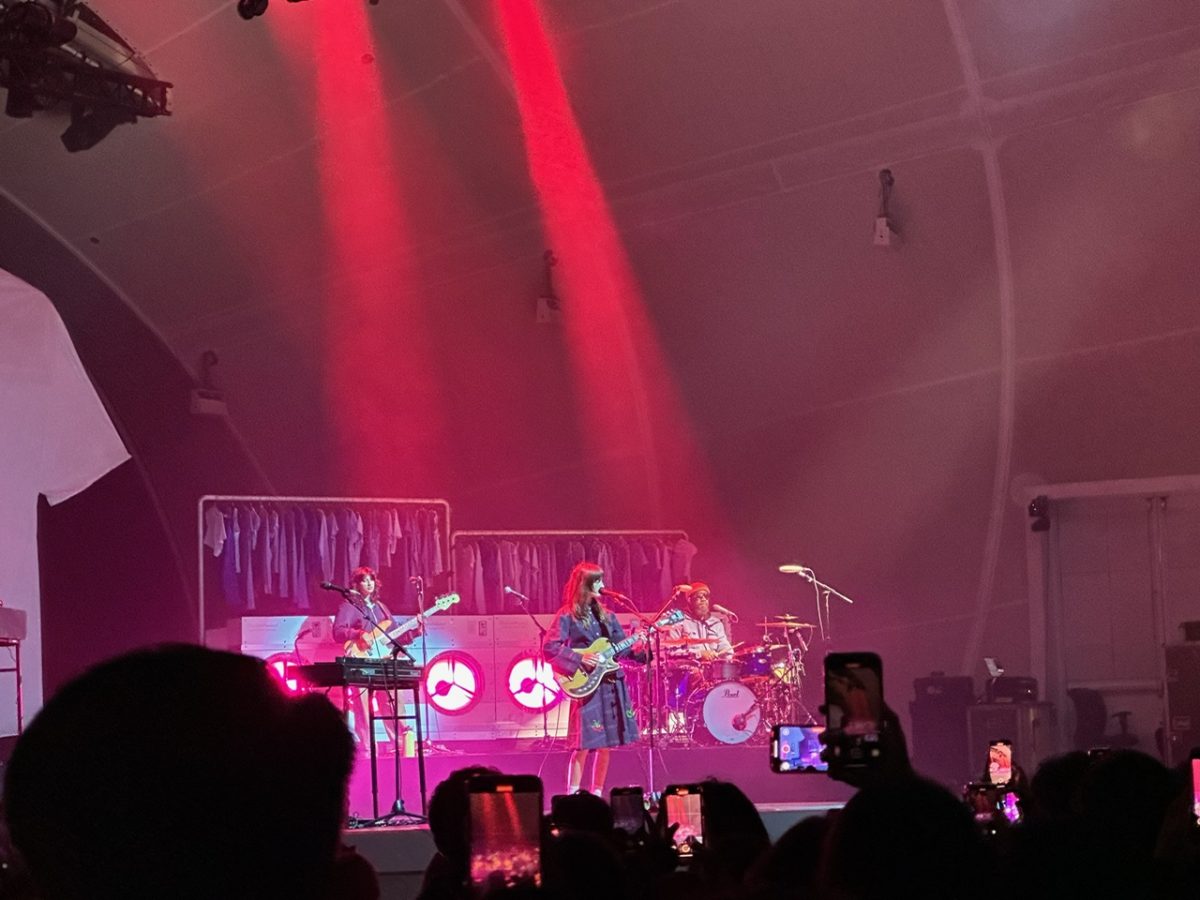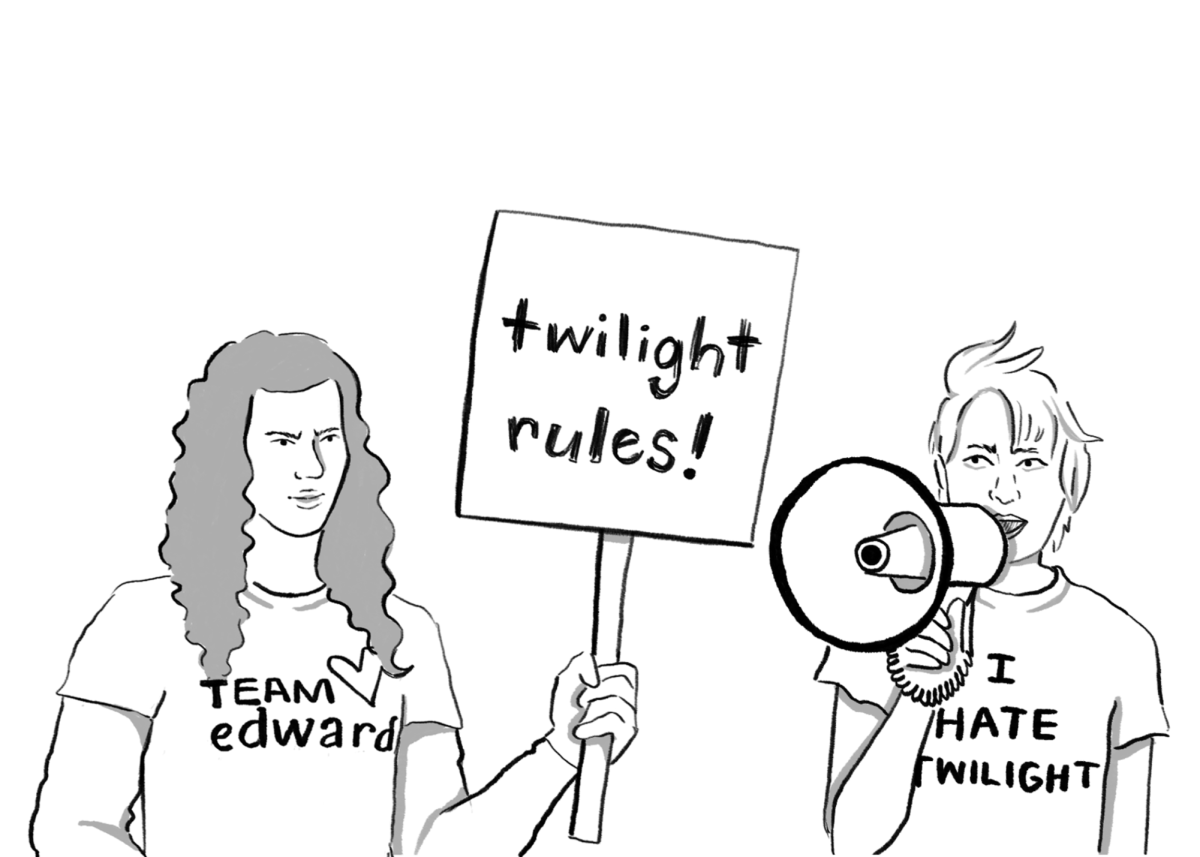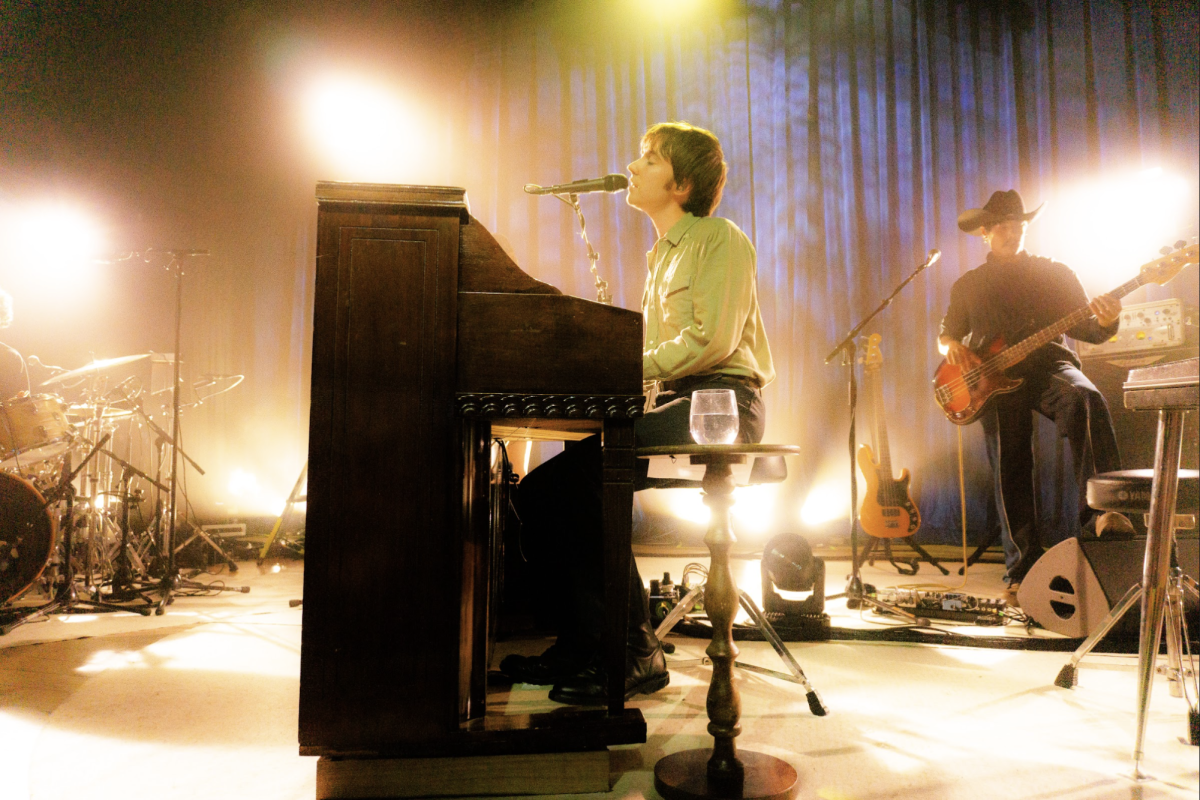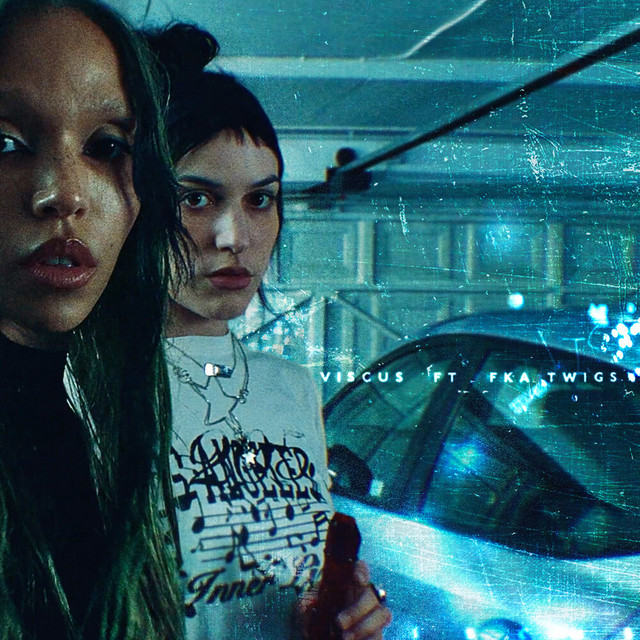If you had told me last week that I would see Minions at Faye Webster’s tour for “Underdressed at the Symphony,” I don’t think I would have believed you. So imagine my surprise when — just before the Atlanta-born singer-songwriter appeared — Minions with long, brunette hair appeared on the stage screen humming Webster’s single, “But Not Kiss,” in their signature high-pitched voices, igniting cackles and laughter from the audience.
Webster herself then took the stage and opened her set with a Minion-less version of “But Not Kiss,” a song about navigating intimacy and setting boundaries. Here, though she yearns for delicate connection, yet feigns indifference. She sings, “I want to see you in my dreams / But then forget.” Webster flirts with the idea of intimacy and infatuation but won’t let herself become seriously invested — see: she’ll sleep in someone’s arms but won’t kiss them.
I paid a lot of attention to Webster’s lyrics and, because of this, I thought about both her relationship with boundaries a lot throughout the concert. I also thought about how terribly funny she is; I was amused by her dry, self-aware lyrics and her cartoonish stage graphics. She is acutely aware of her wit; her fourth album is quite literally titled, “I Know I’m Funny, haha.” However, it was her use of humor that prodded me to think about how her humor is related to her personal barriers.
Artists often use humor and sarcasm as tools of deflection. If you can keep people laughing and entertained by your company, you might not actually have to be honest with them. Combined with her use of bubbles and stage graphics, Webster’s humor might distract you from realizing that the lyrics on her most recent album, “Underdressed at the Symphony” are only an imitation of vulnerability.
Take the sonic highlight “Lego Ring,” for example. This collaboration with childhood friend Lil Yachty sounds like a song about devotion and love, but listeners are unable to discern what love or a devoted future realistically look like for Webster. Backed by Yachty’s autotuned harmonies, Webster sings, “I know what I like / I know what I want / I know what I need.”
As a listener, this self-assured mentality may initially read like love and desire, but Webster does not actually clarify what her likes, needs, and wants are. The album title, “Underdressed at the Symphony,” implies a sense of being exposed, but for most of the concert, I felt that Webster simply claimed to be “undressed” to be perceived as vulnerable while remaining fairly concealed by her humor, impressive vocals, and intentional performance. It’s not necessarily that I want Webster to be more vulnerable; I actually commend her ability to create intimate atmospheres without wearing her heart completely on her sleeve. However, she is clear with her intention in not revealing too much. There is a clear barrier between what she wants to know and what she is keeping for herself.
However, it was the pre-encore conclusion that altered my perspective on Webster’s boundaries. Webster — and the crowd who sang practically every lyric — had just finished the fan-favorite “In A Good Way,” when the drums and guitar for “He Loves Me Yeah!” came roaring in. For the entirety of the show, I was eagerly awaiting this song — my favorite track on her last album.
The audience began to bounce around to the beat, and when Webster started the song by changing the titular lyric from “he” to “she,” the crowd erupted into cheers. Many have interpreted the lyric change to be a confirmation of Webster’s alleged relationship with fellow singer Deb Never. Standing at the center of the Rady Shell, Webster commanded the stage with an effortless brilliance while publicly declaring her love for her girlfriend.
It was then that I began to experience the concert in an entirely new light. How could I have ever felt that what Webster was wielding on that stage was anything less than intimacy? I fault the internet — a limitless tool for invading privacy. Every movement, every action, and every decision celebrities and public figures make are put on blast and dispersed online. This promotes parasocial relationships where fans and audiences believe that they know the ins-and-outs of the artist’s life and that they are entitled to great detail and significant insight. Their declarations of love or emotion feel vapid and meaningless if you have already constructed an image of their lives in your head. Who cares that they’re telling me they’re in love when I’ve already seen the tweets and stalker-ish photos of them in love?
The truth is, we are not entitled to any information about artists’ lives; before this concert, I felt like knowing the ins and outs of an artist’s experiences would give me utmost appreciation for their art. But intimacy is not owed. We should not expect to know Webster’s likes, wants, and needs, nor should we expect to know whether she is in love or not. In fact, it is innately intimate to take the stage and declare that you are in love with someone. The naked claim is all you need to appreciate how intimate Webster is truly being on that stage.










